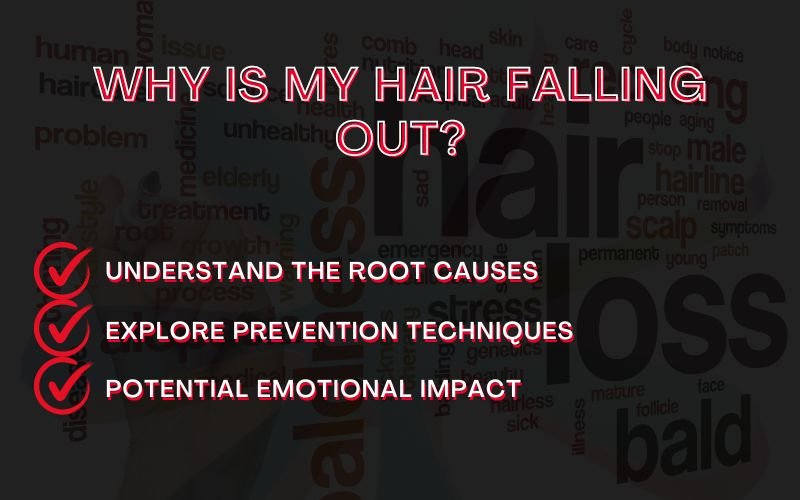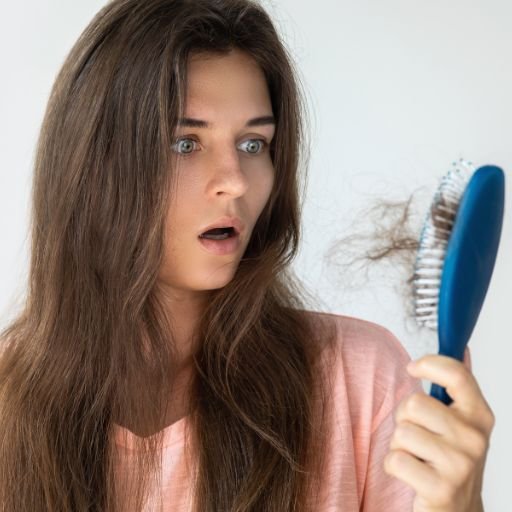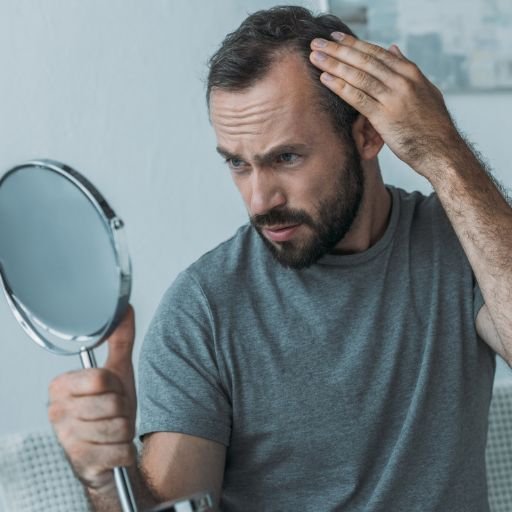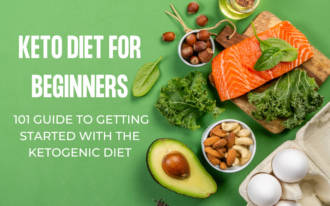Why is my hair falling out?
Hair loss changes how we see ourselves and our body image. Our hair can reflect our youth, energy, and place in society. For both men and women, losing hair to androgenetic alopecia (AGA) is common and deeply impacts1. It makes people feel older and less attractive and hits their self-confidence hard.
Wanting to look good can make us avoid others and hurt our relationships and work. Studies show that many women with hair loss have trouble in their marriages and at work1. For them, losing hair is like losing a part of what makes them feel like a woman and valued in society.
Doctors helping those with hair loss should know about the mental effects. They should check for things like anxiety, depression, and body image issues. People who lose hair tend to have more mental health problems than others 2. Often, these issues are not recognized or treated, making things worse for the patients.
Table of Contents
Key Takeaways
- Hair loss can deeply shake our self-identity and how we see ourselves.
- AGA affects many, both men and women1.
- About 40% of women with hair loss have trouble in their marriages and 63% face issues at work1.
- People with hair loss are more likely to have mental health problems2.
- Doctors need to consider and treat the impact on mental health, not just physical hair loss treatments.
Disclaimer: This blog contains affiliate links, and I may receive a commission if you purchase through them at no additional cost to you.
Why is My Hair Falling Out: Understanding the Common Causes
Hair loss can occur for many reasons, making it challenging to identify just one cause. To help you understand, we’ll discuss why people lose hair.
Genetic Predisposition
Genes play a big part in why we lose hair. People often lose hair because it runs in their family. This is as true for women as it is for men. If your hair is getting thinner or you’re balding, it could be from your genes3. Sadly, this kind of hair loss can’t be stopped4.
Hormonal Changes
Changes in hormones can mess with your hair. For women, things like pregnancy, giving birth, and menopause can cause hair to fall out. Polycystic ovary syndrome (PCOS) also plays a part in hair loss3. Both men and women might lose hair due to issues like thyroid problems that are not working right3.
Stress can cause you to lose hair
A lot of stress can cause hair to fall out simultaneously, a condition called telogen effluvium. There’s also trichotillomania, where people pull out their hair because they feel stressed3. Luckily, hair can grow back to normal after a severe illness or stress.
Medical Conditions and Treatments
Some diseases and how they’re treated can cause you to lose hair. For example, alopecia areata, diseases that attack your own body (autoimmune diseases), thyroid problems, lupus, diabetes, and anemia can all be to blame 5. Cancer treatments like chemotherapy and radiation often lead to hair loss, but your hair might grow back after you’re done with the treatment 3. Scalp infections and some medicines can also make hair loss worse 3.
Eating well is key to having healthy hair. If you’re missing important things like biotin, iron, protein, zinc, or essential vitamins and minerals, your hair might fall out for a while 3. A diet low in protein or lacking specific vitamins can make your hair thinner over time 5. So, eating foods full of nutrients is important to prevent hair loss and keep your hair strong.
The Role of Androgenetic Alopecia in Hair Loss
Androgenetic alopecia is the main reason for hair loss, targeting many over their lives. It’s common, hitting both males and females. It affects up to 50% of people6.
Prevalence in Men
In men, this problem is quite significant. About half of white males have signs by age 50. This number jumps to 80% by age 706. The peak percentage is at about 31% for men between 65-69, as shown by the Norwood Hamilton scale7. Heredity is a big factor, causing 80% of male cases7.
Prevalence in Women
This issue affects women, especially after menopause6. Up to half of females may have it. This can lead to emotional stress due to beauty ideals6.
Underlying Biological Mechanisms
Androgenetic alopecia includes tangled biological workings. A hormone called DHT affects hair follicles sensitive to androgens. This makes the hair cycle shorter and the follicles smaller6.
These developments show a change in normal hair growth ratios. There are two types of the enzyme five alpha-reductase, and the Type 2 form mainly causes these issues6.
Treatments like minoxidil and finasteride are FDA-approved. They need regular use over 4 to 6 months for results67. Finasteride, for example, can cut down scalp DHT by 64%7.
Psychological Impact of Hair Loss
Hair loss goes beyond just physical changes. It profoundly hurts how people see themselves and their body image. Losing hair, especially if it thins early on, can hit someone’s confidence and make them feel bad about themselves 1.
Self-Identity and Body Image
Hair loss can affect how we see ourselves. It can make us feel shy, embarrassed, frustrated, and sometimes jealous. Women often have a more challenging time with hair loss than men 1. This can affect how well we deal with others and our overall happiness.
Emotional Distress and Coping Mechanisms
Losing hair can be emotionally painful and lead to strange ways of coping. Many people who get cosmetic surgery for hair loss also have mental health issues1. For about 30% of men losing hair, they start thinking about it a lot and use weird behaviors to cope8. Dealing with these feelings is key to feeling better.
The Societal Pressure and Perceived Aging
Pressure from society and seeing hair ads can make hair loss even more complicated. Single Guys feel this pressure more than those who are married 8. It can make them feel older than they are. This adds to their emotional stress and might make them enjoy life less 8. It’s vital to tackle these societal demands in treatment plans.
How Stress Contributes to Hair Loss
Stress dramatically affects hair loss, leading to various conditions. These include telogen effluvium, trichotillomania, and alopecia areata.9 Telogen effluvium happens when stress pushes many hair follicles to rest. This leads to sudden hair loss a few months later 9. Trichotillomania is when a person compulsively pulls their hair out. It usually starts in adolescence and can continue into adulthood9. Stress can also cause the immune system to harm hair follicles, resulting in patchy hair loss, known as alopecia areata9.
To fight stress-related hair loss, managing stress is key. Long-term stress often initiates these conditions. So, it’s vital to know how to handle stress well10. Removing adrenal glands in mice made their hair grow back quickly. This shows how stress affects our hair’s health10.
Knowing your stress-related hair loss type is crucial for the right treatment. This might include changing your lifestyle, using medicines, or immunotherapy11. For instance, telogen effluvium may appear after big life changes or health issues11. Using techniques like deep breathing can lower the chances of losing hair due to stress11.
Proactive Steps for Healthier Hair
Embarking on the journey of hair care often feels like navigating through a labyrinth of shampoos, conditioners, and serums, each promising you the luscious locks of your dreams. However, when it comes to preventing hair loss, the solution lies in what you apply to your hair and a holistic approach, combining natural remedies and supplements. Dive into the world of preventive measures and explore how to fortify your future naturally.
The Foundation: A Healthy Scalp and Diet
Nourish from Within:
Just as a plant thrives when its roots are well-nourished, your hair flourishes when your body is fueled with the proper nutrients. A balanced diet rich in vitamins and minerals is paramount. Key players include:
- Biotin (Vitamin B7): This is your best friend, fostering growth and strength. Biotin can be found in eggs, nuts, and whole grains.
- Iron is essential for oxygenating hair follicles. Incorporate spinach, lentils, and lean meats into your diet.
- Omega-3 Fatty Acids: Found in fish, flaxseeds, and walnuts, these help maintain the health of your scalp and hair.
- Vitamin E: An antioxidant that helps repair and build tissue, Vitamin E is found in nuts, seeds, and green leafy vegetables.
Hydration is Key:
Water isn’t just life; it’s also the lifeblood of hair. Staying well-hydrated ensures that your scalp and hair follicles receive adequate moisture, promoting healthy hair growth.
Nature’s Bounty: Herbal Remedies
- Aloe Vera:
Known as the “plant of immortality,” aloe vera has been used for centuries for its healing properties. It soothes the scalp, reduces dandruff, and unblocks hair follicles that may be blocked by excess oil.
- Rosemary Oil:
This aromatic herb is not just for cooking. Massaging your scalp with rosemary oil can improve blood circulation, stimulate hair growth, and even slow graying.
- Green Tea:
Packed with antioxidants, green tea can help boost hair growth and prevent hair loss. You can drink it or apply it directly to your scalp.
Supplementing Smartly
- Multivitamins:
Sometimes, our diet alone isn’t enough to meet all our nutritional needs. Multivitamins specifically formulated for hair health can bridge this gap, providing a blend of essential vitamins and minerals.
- Collagen Supplements:
Collagen, the most abundant protein in our bodies, is crucial for maintaining hair’s strength and elasticity. Supplementing with collagen can help improve hair texture, promote growth, and prevent thinning.
- Saw Palmetto:
This herbal supplement is known for blocking the activity of 5-alpha-reductase, an enzyme that converts testosterone to DHT, a molecule linked to hair loss.
A Holistic Approach: Mind and Body
- Stress Management:
Chronic stress can damage hair health. Yoga, meditation, and regular exercise can help manage stress levels, promoting overall well-being and healthier hair.
Proper Hair Care Routine:
Gentle handling of your hair, avoiding excessive heat styling, and using mild shampoos can prevent unnecessary damage. Regular scalp massages can also improve blood circulation, promoting hair growth.
Incorporating these natural remedies and supplements into your daily routine can provide a robust defense against hair loss, fostering a healthier scalp and stronger, more resilient hair. Remember, the journey to enviable tresses is a marathon, not a sprint. With patience, consistency, and the right preventive measures, you can support your hair’s health and vitality for years to come.
Embrace the power of nature and nourish your hair from within – because your crown deserves nothing less!
FAQ
Why is my hair falling out?
Hair loss has many causes. These include genetics, hormonal shifts, stress, medical issues, and poor nutrition. It’s vital to find the reason to stop hair loss.
How can hair loss affect my psychological well-being?
Losing hair can make you feel less sure about who you are and how you look. This can make you sad, worried, and feel older. It might also make you avoid others or feel low about yourself.
What are the common causes of hair loss?
Things like genetics, hormone changes (such as in pregnancy), and stress can cause hair to fall out. So can some medical treatments or not eating well.
How does androgenetic alopecia contribute to hair loss?
Androgenetic alopecia happens when hair follicles react badly to a type of testosterone. This makes hair growth stop early and the follicles get smaller.
What are the psychological effects of balding triggers?
Feeling like you’re going bald can make you feel shy, upset, and envious of others. Society and ads about hair treatments can make these feelings worse.
How do stress and trauma lead to hair loss?
Stress and trauma can start hair loss conditions like when hair falls out in clumps. This can happen from lots of hair taking a break at once or the immune system mistakenly attacking hair.
Can dietary changes prevent hair loss?
Yes, eating right can help your hair be healthy. A diet full of needed vitamins and minerals encourages good hair growth. This can often stop hair loss from bad nutrition.
Are there effective treatments for androgenetic alopecia?
There are treatments that work for cases like androgenetic alopecia. Drugs like minoxidil and surgeries like hair transplants are common. It’s also crucial to care for your mental health during treatment.
How prevalent is hair loss in men and women?
Androgenetic alopecia can affect up to 80% of men and 50% of women. It’s a very common type of hair loss that hits both sexes hard.
What role does self-identity play in the psychological impact of hair loss?
Hair is often linked to being young, strong, and important. Losing it can make you feel less attractive and powerful. This isn’t just about looks; it can shake how you see yourself.
Articles You May Like
Source Links
- https://www.ncbi.nlm.nih.gov/pmc/articles/PMC8719979/
- https://dermnetnz.org/topics/psychological-effects-of-hair-loss
- https://www.aad.org/public/diseases/hair-loss/causes/18-causes
- https://www.mayoclinic.org/diseases-conditions/hair-loss/symptoms-causes/syc-20372926
- https://www.webmd.com/skin-problems-and-treatments/hair-loss/understanding-hair-loss-basics
- https://www.ncbi.nlm.nih.gov/books/NBK430924/
- https://www.ncbi.nlm.nih.gov/books/NBK278957/
- https://www.ncbi.nlm.nih.gov/pmc/articles/PMC10084176/
- https://www.michelegreenmd.com/hair-loss-caused-by-stress
- https://www.nih.gov/news-events/nih-research-matters/how-stress-causes-hair-loss
- https://www.medicalnewstoday.com/articles/can-stress-cause-hair-loss










Pingback: Is Folicerin Effective For Hair Loss Treatment? - Healthy Living Journey